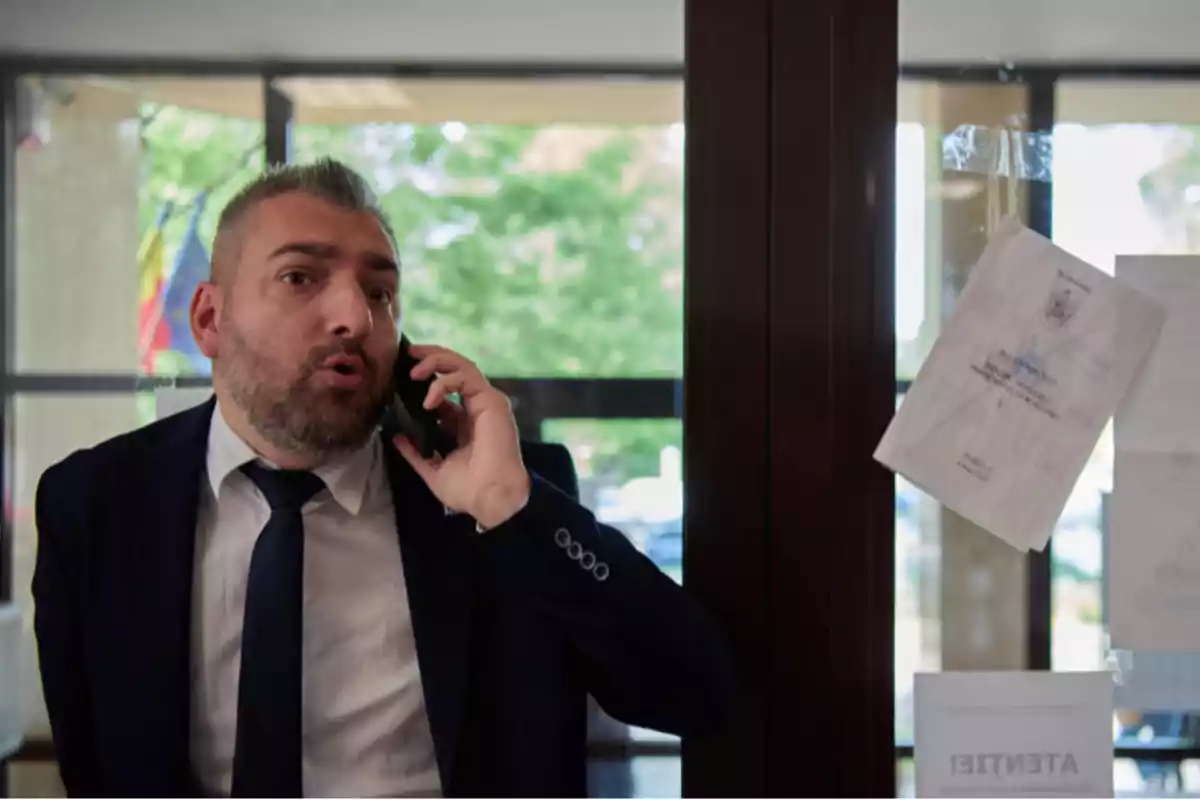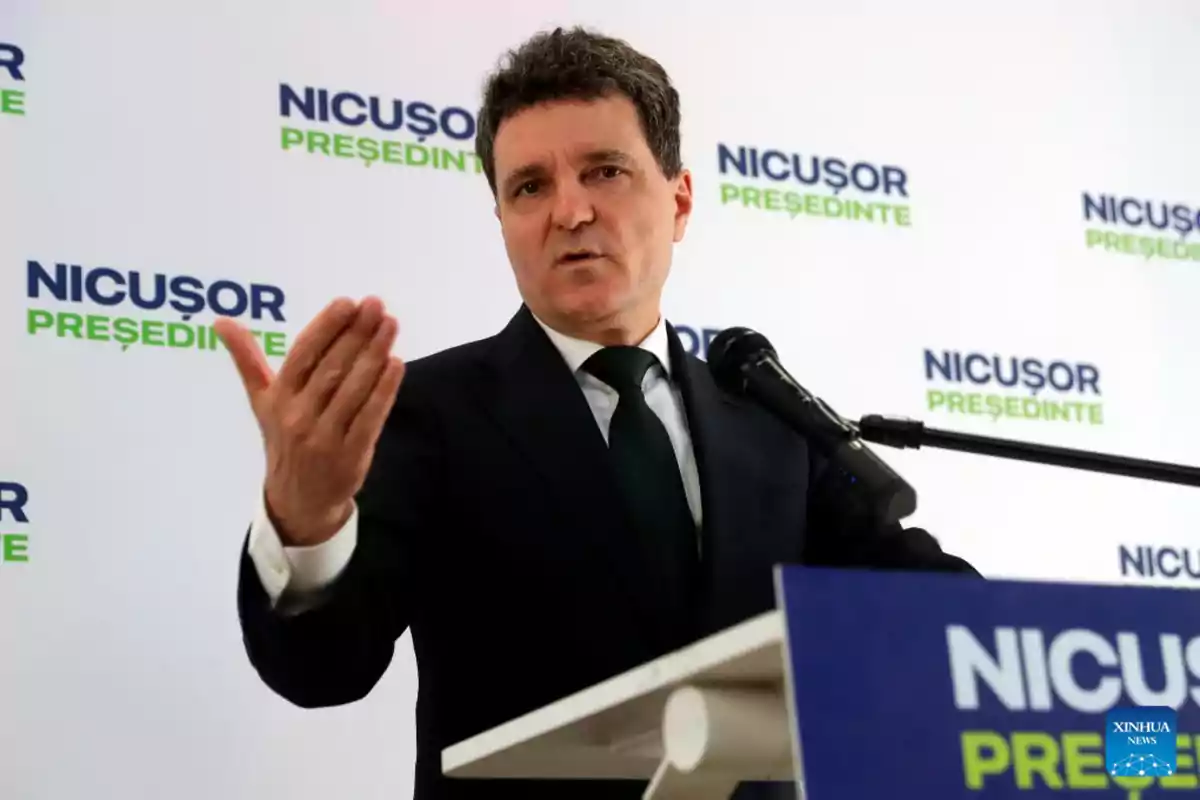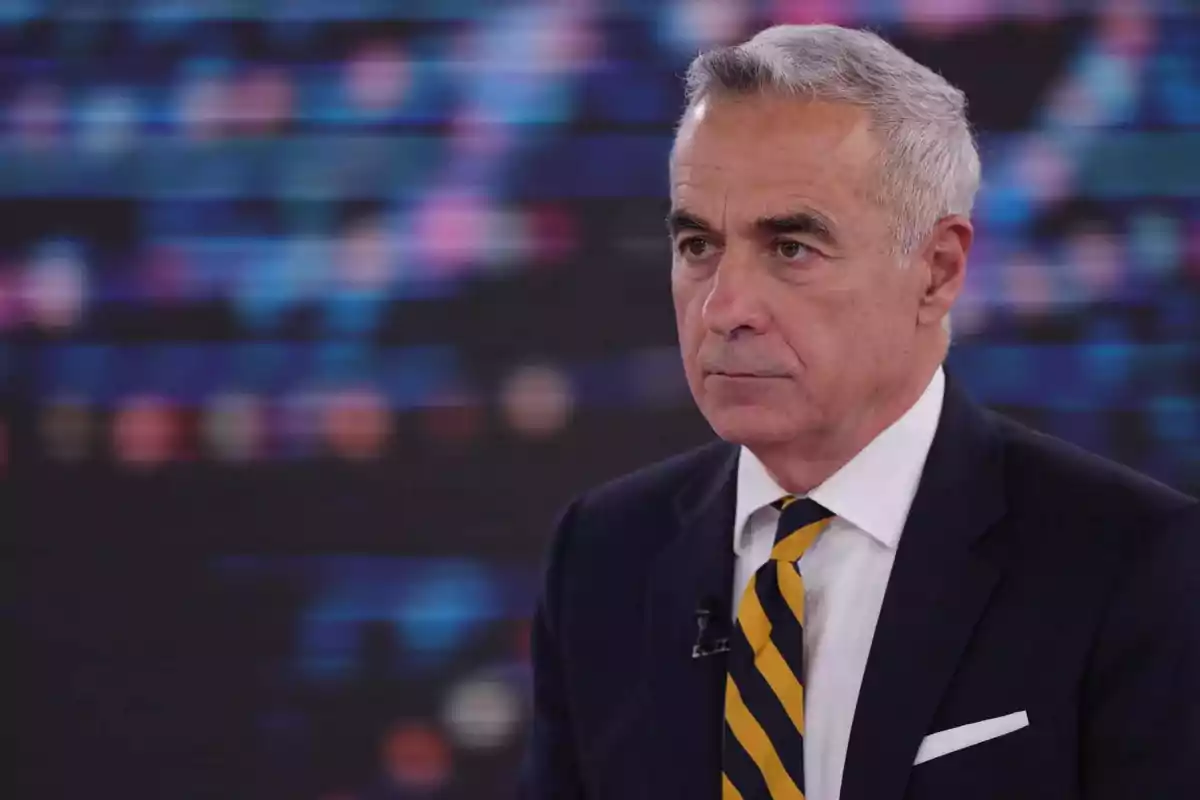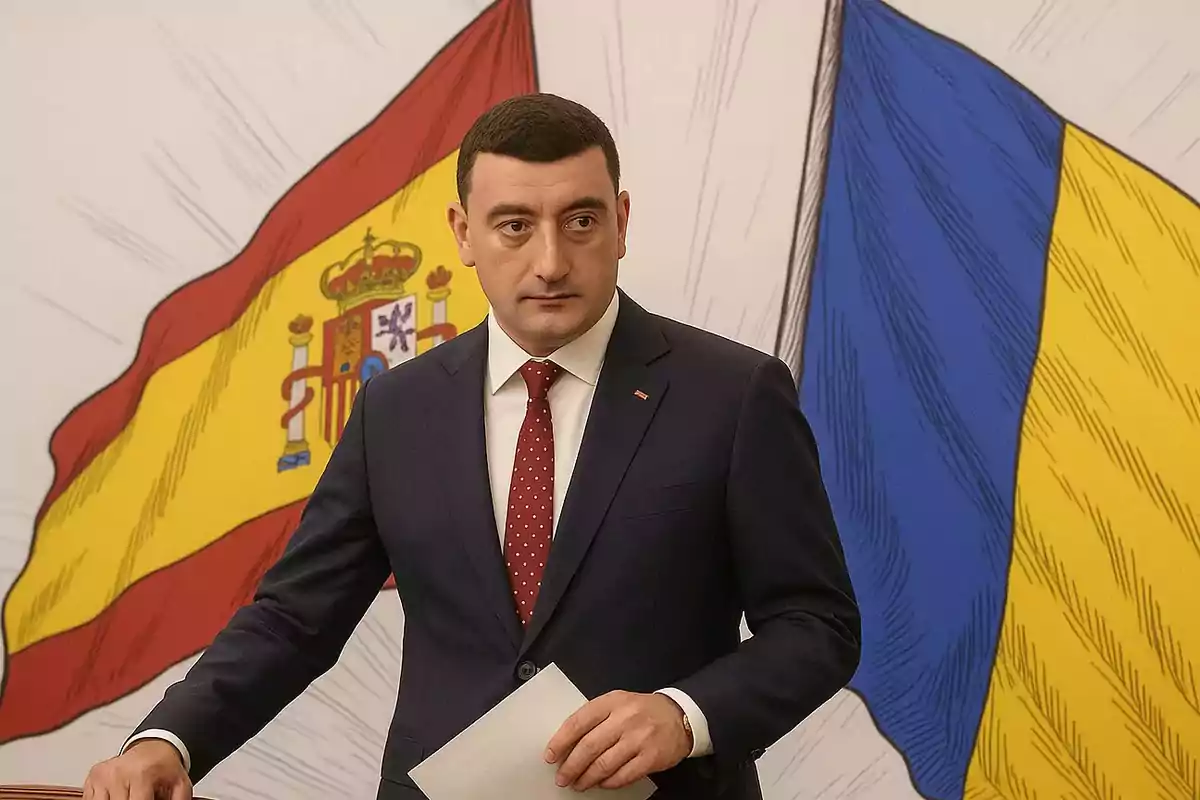
They attempt to challenge the victory of the right-wing candidate in Romania.
A candidate who received less than 1% of the vote seeks to annul the elections in which Simion achieved victory
Sebastian Popescu, leader of the National Renewal Party (PNR), has challenged the results of the 2025 presidential elections in Romania after obtaining just 0.28% of the votes in the first round.
Ninth among the ten candidates, Popescu alleges unequal treatment in media and social networks, claiming that certain candidates were favored, although he hasn't presented solid evidence to support these accusations.
Popescu has directly pointed to George Simion, leader of the Alliance for the Union of Romanians (AUR), and Nicușor Dan, former mayor of Bucharest and independent candidate with support from pro-European sectors, as beneficiaries of privileged media coverage.

The PNR candidate compared his situation to the "Georgescu case" of 2024, when he falsely alleged that Calin Georgescu was benefited by a massive disinformation campaign on social networks, coordinated with Russian support. However, Popescu's complaint contains no evidence of external interference or digital manipulation.
Furthermore, Popescu criticized the country's main television channels for limiting electoral debates to the five candidates with the highest voting intention. He stated that daily news spaces focused exclusively on those candidates, marginalizing the rest of the contenders, which according to him, distorted the democratic process.
Nevertheless, electoral experts and international observers haven't identified systematic irregularities in media coverage or significant violations of electoral legislation.

The Constitutional Court of Romania, which was already a key player in 2024 after annulling the first round of elections due to Russian interference, must now decide whether to accept or reject Popescu's challenge.
Although an official date for the case review hasn't been set yet, a resolution is expected soon, given that the second round is scheduled for May 18.
In the first round held this year, George Simion obtained 40.96% of the votes, followed by Nicușor Dan with 20.99%. Crin Antonescu (PNL) came in third with 20.07%, and former Prime Minister Victor Ponta reached 13.04%.
The competition between Simion and Dan is shaping up as a contest between deeply opposing visions of the country's future.

Simion, with a nationalist, conservative campaign against new taxes, has caused excitement with his proposal to cut 500,000 public sector jobs within five years.
His rhetoric has sparked optimism in financial markets, amid a drop in the Romanian leu and stock index turbulence. Additionally, he has announced that he will appoint Calin Georgescu as prime minister, despite the fact that he was previously illegally vetoed by the Constitutional Court after his involvement in disinformation networks was revealed.
In contrast, Nicușor Dan represents a reformist and pro-European alternative. He has promised to stabilize the political situation, improve international relations, and strengthen the country's democratic institutions.

His proposal revolves around administrative transparency, state modernization, and the improvement of public services, including education and health.
These elections are taking place in a context of high tension following the annulment of the 2024 elections, when the Constitutional Court detected an alleged massive campaign of "Russian hybrid attacks" to manipulate the election in favor of Georgescu.
The international community is closely watching the process, aware of the impact these events may have on Romania's institutional stability and its positioning within the European Union and NATO.
The second round between George Simion and Nicușor Dan will be decisive for the country's political direction. Beyond the results, the process will serve as a barometer of Romania's democratic resilience in the face of internal polarization and external interference.

More posts: